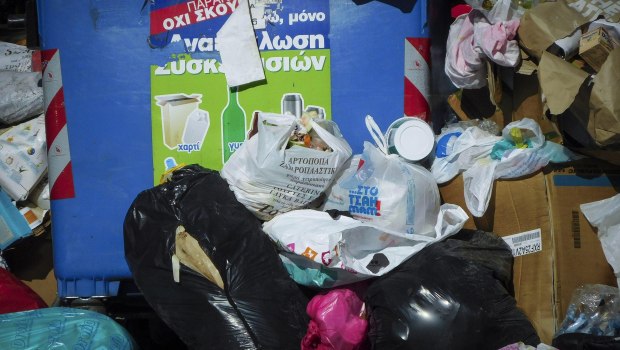Instant Analysis: Why Tsipras rushed to “dive into the sea” – Who he’s building bridges wi
Source: ProtoThema English
Tsipras’ resignation as a SYRIZA MP was the first step toward founding a new party in the space of the broad center-left. It was expected. After all, he had already confided to a close associate long ago that he would not exercise the special privilege granted to former prime ministers to run in any electoral district without preference votes in the next elections.
What was unknown was the timing of his resignation. Alexis Tsipras chose to announce it on the opening day of the new parliamentary session, and he did so for four main reasons:
To Escape Pressure and Act Freely
Tsipras had been facing intense pressure from MPs, journalists, businesspeople, party officials, collaborators, and friends about when and how he would found his new party. By resigning, he now has freedom of movement—even in secret—to make contacts with SYRIZA members and figures from other parties regarding the new political vehicle he is preparing.
His disengagement from SYRIZA—according to those close to him—has emotionally unburdened him and allows for greater freedom in decision-making. He didn’t just leave the parliamentary group but left the party entirely, now led by Sokratis Famellos after what many describe as the “embarrassing” Kasselakis period, for which Tsipras himself bears significant, if not primary, responsibility.
Remaining a member of SYRIZA would have been, at the very least, humiliating and politically self-defeating for his new project. He leaves the formalities of this party “divorce” to SYRIZA headquarters (Koumoundourou).
To Avoid Further Damage From Delay
Tsipras had begun to realize that delays were costing him. His ambiguous stance (“I never said I would found a new party”) contrasted with comments from close associates confirming the opposite. This was not just dragging SYRIZA’s poll numbers to rock bottom, but effectively destroying the party he founded and once led as Prime Minister.
His lack of clarity was hurting the broader progressive opposition, giving the government breathing room while its officials exploited the anti-SYRIZA and anti-Tsipras sentiment.
Many who voted for Tsipras in 2015, 2019, and 2023 (with help from his former comrades, the media, and other parties from New Left to KKE and from PASOK to Zoe, Kasselakis, and Varoufakis) started to blame him for the disintegration of the left. They also began assigning him negative labels (centrist, compromised, etc.) that were damaging to his credibility and undermined his return as a progressive leader.
Had he delayed further, it would have only added obstacles to his attempted comeback.
To Symbolically Distance Himself From the Current Parliament
By resigning on the first day of the new parliamentary session, Tsipras wanted to underscore his disapproval of a Parliament that, in his view, fails to address major scandals (like OPEKEPE and the Tempi train crash) through proper democratic procedures (e.g., inquiries, investigations).
He’s trying to distance himself from the image of the discredited political class and connect with the disillusioned electorate, particularly those who now fall into the “gray zone” of undecided voters or answer “none of the above” in polls.
In his resignation statement, he said:
“I cannot and do not want to participate, even formally, in a Parliament that, stripped of democratic substance—mainly due to the majority’s responsibility—cannot fulfill its constitutional role or the people’s expectations.”
To Preempt Political Competitors
Tsipras’ timing also aimed to undercut other efforts to form alliances or coalitions meant to neutralize him politically. Figures like Famellos, Charitsis, Louka Katseli, Temponeras, and Androulakis were reportedly caught off guard, not expecting such a swift resignation.
Some were rushing to position themselves either inside Tsipras’ future project—or to negotiate better political terms from the outside. Now, they will have to adjust their strategies.
Those expected to be clearly opposed to Tsipras include Nikos Pappas, Pavlos Polakis, and Rena Dourou from SYRIZA, and Euclid Tsakalotos, Nikos Filis, and Panos Skourletis from the New Left. More may join them as it becomes evident that Tsipras does not plan to include them—either due to perceived toxicity or because they don’t fit the rebranding of his new movement.
What Comes Next
His next move is the release of his book, which, given the anticipation and media buzz, is expected to become a bestseller, potentially even on day one. It will not only generate income (compensating for the loss of his MP salary) but will silence critics who might ask: “How will Tsipras make a living now?”
Published by Gutenberg, the book is already in demand—many of his former comrades and rivals reportedly plan to include it in their Christmas gift lists.
Tsipras will also focus on:
- Staffing his think tank/institute
- Delivering select speeches (e.g., at the Sorbonne)
- Giving interviews, mainly to international media
- Hosting book presentations
- And finally, announcing his new party—around February–March 2026
He intends to unveil the party with a declaration reminiscent of Andreas Papandreou’s 1974 PASOK manifesto, emphasizing the need for a “New Metapolitefsi” (political reboot), a new progressive movement for political change.
His Political Message and Appeal
Tsipras aims to appeal to the broad social majority who, in his words, “suffocate under a regime of widespread corruption that breeds inequality and injustice.”
He warns that “this cannot go on” and calls on those still hesitant:
“If those responsible for the democratic opposition can’t set aside their self-interests to enable change, then we must become the change we seek—to take the future into our own hands.”
His anticipated comeback is already causing nervousness in rival parties and may even accelerate the launch of two other parties in the making—those of Antonis Samaras and Maria Karystianou.
A Final Note: Timing and Governmental Turmoil
Some speculate that Tsipras’ decision to accelerate his plans may also be linked to potential developments within the ruling government. If, as is likely, no party achieves a majority in the next elections, it could lead to a governance crisis.
Of note, Tsipras maintains a good relationship with Nikos Dendias, who is currently seen as the front-runner to succeed Mitsotakis when the time comes.
Ask me anything
Explore related questions
The original article: belongs to ProtoThema English .




